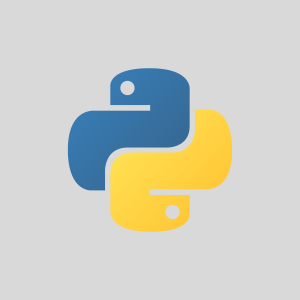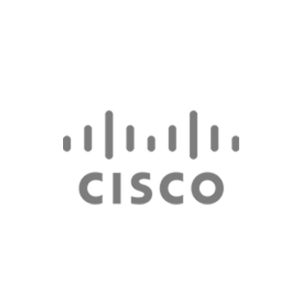Description
Who should attend
- Individuals planning to deploy applications and create application environments on Google Cloud
- Developers, systems operations professionals, and solution architects getting started with Google Cloud.
- Executives and business decision makers evaluating the potential of Google Cloud to address their business needs.
Prerequisites
To get the most out of this course, participants should:
- Have basic proficiency with networking technologies like subnets and routing
- Have basic proficiency with command-line tools
- Students are expected to have experience with Amazon VPC, Amazon EC2 instances, and disks. Familiarity with Amazon S3 and AWS database technologies is recommended
Course Objectives
- Identify Google Cloud counterparts for Amazon VPC, subnets, routes, NACLs, IGW, Amazon EC2, Amazon EBS, auto-scaling, Elastic Load Balancing, Amazon S3, Amazon Glacier, Amazon RDS, Amazon Redshift, AWS IAM
- Configure accounts, billing, projects, networks, subnets, firewalls, VMs, disks, auto scaling, load balancing, storage, databases, IAM, and more
- Manage and monitor applications
- Explain feature and pricing model differences
Outline: Google Cloud Platform Fundamentals for AWS Professionals (GCP-FAP)
Module 1 Introducing Google Cloud
Topics
- What is cloud computing?
- Google Cloud Computing architectures
- The Google network
- Google Cloud Regions and Zones
- Google Cloud versus AWS regions and zones
- Open API’s
- Multi-layered security approach
- Budgets and Billing
Objectives
- Explain the advantages of Google Cloud
- Define the components of Google‘s network infrastructure, including: points of presence, data centers, regions, and zones
- Understand the difference between Infrastructure-as-a-Service (IaaS) and Platform-as-a-Service (PaaS)
Activities
- 1 Quiz
Module 2 Getting Started with Google Cloud
Topics
- Google Cloud resource hierarchy
- Comparison to AWS resource hierarchy
- Identity and Access Management (IAM)
- IAM Roles
- Comparison to Azure AD
- Interacting with Google Cloud
- Cloud Marketplace
Objectives
- Identify the purpose of projects on Google Cloud
- Understand how AWS resource hierarchy differs from Google Cloud‘s
- Understand the purpose of and use cases for Identity and Access Management
- Understand how AWS IAM differs from Google Cloud IAM
- List the methods of interacting with Google Cloud
- Launch a solution using Cloud Marketplace
Activities
- 1 lab and 1 quiz
Module 3 Virtual Machines in the Cloud
Topics
- Virtual Private Cloud (VPC) Network
- How AWS VPC differs from Google VPC
- Compute Engine
- Comparing Amazon EC2 and Google Compute Engine
- Important VPC Capabilities
- How typical approaches to load-balancing in Google Cloud differ from those in AWS
Objectives
- Identify the purpose and use cases for Google Compute Engine
- Understand the basics of networking in Google Cloud
- Understand how AWS VPC differs from Google VPC
- Understand the similarities and differences between Amazon EC2 and Google Compute Engine
- Understand how typical approaches to load-balancing in Google Cloud differ from those in AWS
- Deploy applications using Google Compute Engine
Activities
- 1 lab and 1 quiz
Module 4 Storage in the Cloud
Topics
- Cloud Storage
- Cloud Storage Interactions
- Comparing Amazon S3 and Amazon Glacier with Google Cloud Storage
- Cloud Bigtable
- Cloud SQL and Cloud Spanner
- Cloud Datastore
- Comparing Amazon RDS with Google Cloud’s managed database services
- Comparing Storage Options
Objectives
- Understand the purpose of and use cases for: Cloud Storage, Cloud SQL,Cloud Bigtable and Cloud Datastore
- Understand how Amazon S3 and Amazon Glacier compares to Cloud Storage
- Compare Google Cloud’s managed database services with Amazon RDS
- Learn how to choose among the various storage options on Google Cloud
- Load data from Cloud Storage into BigQuery
Activities
- 1 lab and 1 quiz
Module 5 Containers in the Cloud
Topics
- Containers in the Cloud
- Kubernetes and Kubernetes Engine
- Hybrid and Multi-Cloud
- How Amazon Elastic Container Service (ECS) and Amazon Elastic Kubernetes Service (EKS) differ from GKE
Objectives
- Define the concept of a container and identify uses for containers
- Identify the purpose of and use cases for Google Container Engine and Kubernetes
- Understand how Amazon Elastic Container Service (ECS) and Amazon Elastic Kubernetes Service (EKS) differ from GKE.
- Provision a Kubernetes cluster using Kubernetes Engine
- Deploy and manage Docker containers using kubectl
Acitvities 1 lab and 1 quiz
Module 6 Applications in the Cloud
Topics
- App Engine Standard Environment
- App Engine Flexible Environment
- Comparison to Azure App Service
- Cloud Endpoints and Apigee Edge
Objectives
- Understand the purpose of and use cases for Google App Engine
- Contrast the App Engine Standard environment with the App Engine Flexible environment
- How App Engine differs from Amazon Elastic Beanstalk
- Understand the purpose of and use cases for Google Cloud Endpoints
Activities
- 1 quiz
Module 7 Developing, Deploying and Monitoring in the Cloud
Topics
- Development in the cloud
- Deployment: Infrastructure as code
- How Cloud Deployment Manager differs from AWS CloudFormation
- Monitoring: Proactive instrumentation
- How Cloud Operations differs from Amazon CloudWatch and AWS CloudTrail
Objectives
- Understand options for software developers to host their source code
- Understand the purpose of template-based creation and management of resources
- Understand how Cloud Deployment Manager differs from AWS CloudFormation.
- Understand the purpose of integrated monitoring, alerting, and debugging
- Understand how Google Monitoring differs from Amazon CloudWatch and AWS CloudTrail
- Create a Deployment Manager deployment
- Update a Deployment Manager deployment
- View the load on a VM instance using Cloud Monitoring
Activities
- 1 lab and 1 quiz
Module 8 Big Data and Machine Learning in the Cloud
Topics
- Google Cloud Big Data Platform
- Dataflow
- BigQuery
- How BigQuery differs from Amazon Redshift
- Pub/sub and Datalab
- How Cloud Pub/Sub differs from Amazon SQS
- Google Cloud Machine Learning Platform
- ML APIs
- How GCP’s machine-learning APIs differ from AWS’s
Objectives
- Understand the purpose of and use cases for the products and services in the Google Cloud big data and machine learning platforms
- Understand how Google Cloud BigQuery differs from Amazon Redshift
- Understand how Google Cloud Pub/Sub differs from Amazon SQS
- Understand how Google Cloud’s machine-learning APIs differ from AWS’s
- Load data into BigQuery from Cloud Storage
- Perform queries using BigQuery to gain insight into data
Activities
- 1 lab and 1 quiz
Module 9 Summary and Review
Topics
- Course Review
- The Process of migrating from AWS to Google Cloud
- Next Steps



